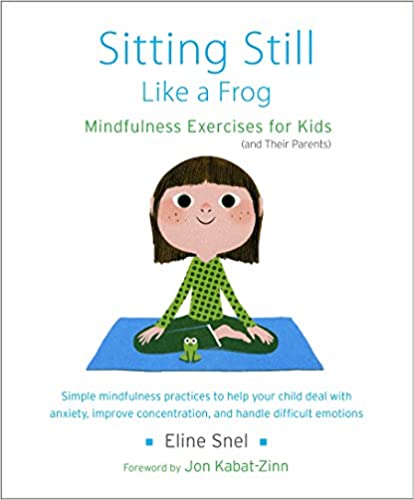Parents Who Raise Resilient, Socially Intelligent Kids Do These 5 Things
 Kids, especially teens and tweens, sometimes need validation that what they are thinking and feeling is normal and okay. In fact, psychologists believe that validation is one of the most powerful parenting tools, and yet it is often left out of traditional behavioral parent training programs.Validating your child’s feelings doesn’t necessarily mean you condone or agree with the actions they take. It simply means showing that you hear, understand and accept them. This can help teach them to effectively label their own emotions and be more in tune with their social environments, thereby increasing emotional intelligence.
Kids, especially teens and tweens, sometimes need validation that what they are thinking and feeling is normal and okay. In fact, psychologists believe that validation is one of the most powerful parenting tools, and yet it is often left out of traditional behavioral parent training programs.Validating your child’s feelings doesn’t necessarily mean you condone or agree with the actions they take. It simply means showing that you hear, understand and accept them. This can help teach them to effectively label their own emotions and be more in tune with their social environments, thereby increasing emotional intelligence.
Here’s how successful parents convey these important messages during hard times:
1. They normalize experiences
Friendships help children develop important life skills like getting along with other people and solving conflicts. But no friendship is perfect.
Remind your child that all friendships go through ups and downs. In lasting relationships, close friends inevitably disappoint, irritate or mess up occasionally.
2. They provide physical comfort
Unless your kid recoils at touch, physical comfort may be more immediate and impactful than any verbal assurance.
Several studies have found benefits of interpersonal touch. For example, being hugged can lower blood pressure and instill a feeling of care and safety. A fifth grader once told her mother: “When I’m sad, I just need you to give me a big hug and say, ‘Yeah, that really sucks. It’s awful.’”
3. They teach that quality tops quantity
Tweens often gauge self-worth by how many friends they have. They don’t recognize yet that the quality of relationships matters more. One study found that teens who had many — but more superficial — school friends became more anxious as young adults.
Contrary to what most kids think, being popular doesn’t alleviate loneliness. Popularity, a social status that is driven by exerting power through rumors and put-downs, is inherently unstable and therefore difficult to maintain
4. They focus on the positives
I often see kids dwell on one social slight or disappointment, which in that moment looms larger and more pressing than all the positives in their lives.
While empathizing with your child’s distress, refocusing their attention on their most recent triumphs and pleasures lets them appreciate the bigger and brighter picture.
5. They provide hope
Tell your kid that although they are going through a rough time now, it will not last forever. Things will get better. This is not a platitude. Social situations will change because kids will change.
They just need to be patient while they and their peers mature. If they try to make changes in their friendships, for example, remind them that turning things around takes time. But for now, what they can control is how they act in socially challenging situations.
Excerpted from “A psychologist says parents who raise resilient, socially intelligent kids always do 5 things during ‘hard times’” by Roni Cohen-Sandler, Ph.D., a licensed clinical psychologist, author and speaker who specializes in mother-daughter relationships. Read the full story on CNBC.com.
Source: CNBC | A psychologist says parents who raise resilient, socially intelligent kids always do 5 things during ‘hard times’, https://www.cnbc.com/2022/03/19/psychologist-says-parents-who-raise-resilient-socially-intelligent-kids-do-5-things-during-hard-times.html | © 2022 CNBC LLC
If you have concerns about your child or teen, CHC Care Coordinators can arrange a free 30-minute consultation so you can explore options with an expert. We invite you to call or email us at 650.688.3625 or careteam@chconline.org to set up an initial Parent Consultation appointment. CHC teletherapy services are available now.





